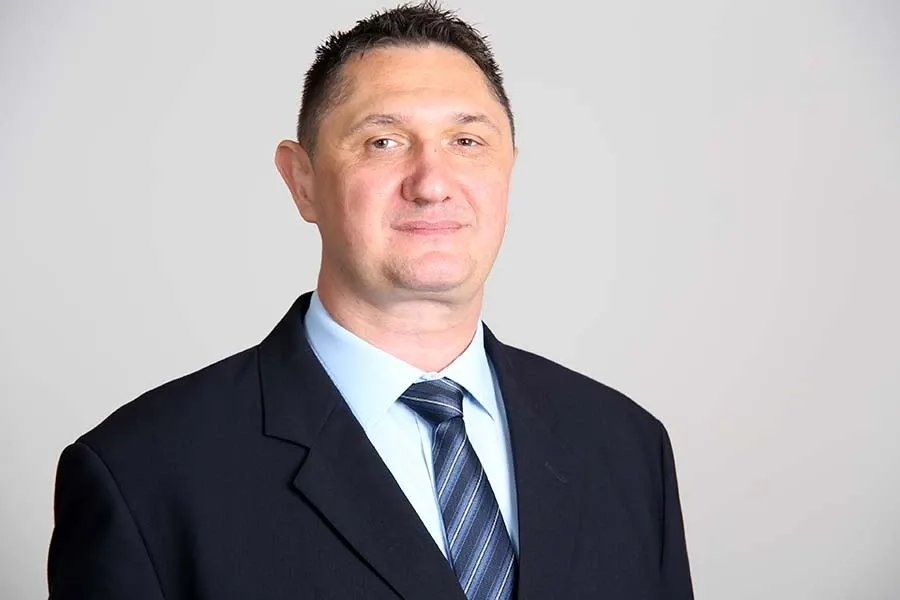Siemens Honors Pioneering Inventors for the 30th Time
This year, for the 30th time, Siemens is awarding the title “Inventor of the Year” to outstanding researchers working in Germany, the United States, China, and Switzerland.

One of the largest domestic data centers, Altus IT, has changed its owner and is now part of Interxion: Digital Realty Company and operates under the name InterXion Croatia, and that was the reason for our conversation with the director Goran Đoreski.
As Đoreski points out, the director of the former Altus IT today InterXion Hrvatska, the reason for the acquisition lies in the fact that not only are the business models closely aligned, but Altus IT is one of the most connected data centers in Southeast Europe.
The acquisition of Altus IT will allow new and existing Interxion customers easy access to the Southeast European market and, consequently, further growth and development, explains Đoreski, adding that taking this into account, as well as existing globalization trends, this is a great move for both companies.
Considering that due to stock market restrictions you cannot talk about the value of the transaction, what does it mean for you as a company to put Croatia on the world map of data centers?
For some time now, we’ve been seeing a huge surge in customer demand across the entire EMEA region, not just in south east Europe. In fact, statistics suggest that the number of connected devices around the world is to reach 50 billion by 2030 - that’s a huge amount of data being created. In response, businesses are scrambling to execute their digital transformation strategies while trying to solve global coverage and capacity issues. Joining Interxion: A Digital Realty Company makes Altus IT part of a global platform, giving new and existing customers a practical and efficient route into the south east Europe market and the ability to partly deal with these coverage and capacity challenges.
What is Altus IT’s development plan for the future, given that you are the strongest domestic data center?
Many businesses are looking to grow and scale internationally. While of course we can serve customers very well domestically, it is far more challenging to serve them internationally. Joining Interxion: A Digital Realty Company gives our customers access to a vast global footprint and a platform that’s easily scalable across EMEA and the world more broadly.
Are you planning a new regional step even though everything is already on the global market in the area of data centers? What are the plans for the future development of Altus IT, construction of new rooms in the data center, expansion to the region?
At this present time, we can’t disclose any more information about our market expansion roadmap.
What does it mean for you to be a part of Digital Realty and their European company Interxion? How did that collaboration come about in the first place?
Interxion: A Digital Realty Company’s acquisition of Altus IT made sense on several different levels. Not only are our businesses models closely aligned, but Altus IT is one of the most highly connected data centre in south east Europe. Generally, we’re seeing increased customer demand across EMEA as businesses look to execute their digital transformation strategies and find ways to solve global coverage and capacity issues. The acquisition of Altus IT will give Interxion’s new and existing customers easy access to the market in south east Europe, allowing them to scale and expand accordingly. This, together with the existing globalisation trends, made for a good fit for both businesses.
When you look at the development of Altus IT and the domestic market of data centers today, where there are also two large telecoms Hrvatski Telekom and A1 Hrvatska and PCK, Storm, Megatrend and others, what are the key good and bad sides of development so far?
It is important to first look back on the industry and understand how it has developed up until this point. Previously, data centers were built to support the business. This was a valid strategy at the time, especially in the telecoms sector where growth was encouraged. In contrast, our strategy was to focus on the carrier neutral customer, which if you look back over the past 10 years we have achieved.
How important was it to you being carrier neutral and you have a total of 50 telecoms to work with?
Global trends clearly show that being carrier neutral is a good strategy for any data center provider. This has been the cornerstone of our business and an important reason as to why Altus IT and Interxion: A Digital Realty Company are so well aligned.
When you look at the Croatian and regional data center market and compare it with the European or world market, where do you see opportunities, but also problems?
Croatia is still to experience the growth realised in the West. This makes the region ripe for development as many established businesses are only now starting to see the opportunities in the area. The availability of infrastructure is driving businesses’ expansion here, which will continue to develop the market.
The biggest challenge here remains the fact that we cover a much wider area than in the West, where business is normally focused on a single city or one country. Our geographic reach includes cross country borders with different legal systems necessary to expand the reach.